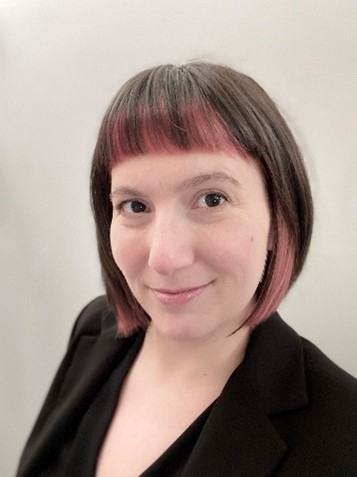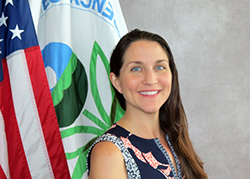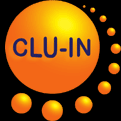Introduction to Groundwater High-Resolution Site Characterization
Sponsored by: U.S. EPA, Office of Superfund Remediation and Technology Innovation
Archived: Thursday, February 17, 2022
Introduction to Groundwater High-Resolution Site Characterization
2022-02-17
U.S. EPA, Office of Superfund Remediation and Technology Innovation
Introduction to Groundwater High-Resolution Site Characterization (HRSC): This live two-part webinar series is an introduction to HRSC. The introductory sessions address the following technical content:
- Defining HRSC and how it is implemented
- Explaining the need for and benefits of HRSC
- Reviewing the eight components of the CSM and how HRSC informs the CSM
- Refresher of basic hydrologic properties and how these properties vary within geologic systems
- Refresher of the principles of contaminant fate and transport and how these characteristics affect the distribution of contaminants in the aquifer
- Conceptual site models of fate and transport in unconsolidated and fractured rock
- Introduction to the challenges of characterizing contaminant distribution in fractured rock
After taking this webinar series, participants will be prepared to dig deeper into the uncertainties created by traditional sampling approaches and learn how HRSC can address these challenges in the in-person HRSC course.
Each webinar will be 2.5 hours long. The recommended audience includes EPA, federal, state, tribal and private industry technical project managers, practitioners and other stakeholders involved in groundwater investigation and remediation.
SPECIAL INSTRUCTIONS FOR THOSE TAKING THE THREE DAY IN PERSON CEC GROUNDWATER HRSC COURSE: This live two-part webinar series is a prerequisite for those wanting to attend the three-day in-person CERCLA Education Center (CEC) Groundwater HRSC course. If you are not able to attend the live webinar series, it will be recorded and a link to the recording will be provided to those registered to attend the classroom training that will allow you to listen at your convenience prior to the classroom delivery. If you have any questions regarding the webinars, please feel free to contact Jodi McCarty, ICF at jodi.mccarty@icf.com.
Accessibility, Recording, and Content Disclaimer
Rehabilitation Act Notice for Reasonable Accommodation
It is EPA's policy to make reasonable accommodation to persons with disabilities wishing to participate in the agency's programs and activities, pursuant to the Rehabilitation Act of 1973, 29 U.S.C. 791. Any request for accommodation should be made to Jean Balent at 202-566-0832 or balent.jean@epa.gov, preferably one week or more in advance of the webinar, so that EPA will have sufficient time to process the request. EPA would welcome specific recommendations from requestors specifying the nature or type of accommodation needed. Please note that CLU-IN provides both alternate phone call-in options and closed captioning for all webinars, and requests for these specific accommodations are not necessary.
Webinar Recording
By participating in this CLU-IN webinar, you automatically agree to authorize recording of audio and visual content presented during this live event and consent to subsequent use of this recording in the public domain by the U.S. Environmental Protection Agency. This recording may include questions, comments and poll responses provided by you during the live event in addition to your name, voice, image or likeness. This recording will be made available after the conclusion of the live event as part of the CLU-IN webinar archives, and will remain available indefinitely. If you do not wish to consent to the recording, please do not join the live event, and contact Jean Balent at 202-566-0832 or balent.jean@epa.gov to discuss your concerns.
Content Disclaimer
This webinar is intended solely to provide information to the public. The views and opinions expressed as part of this webinar do not necessarily state or reflect those of the U.S. Environmental Protection Agency. It is not intended, nor can it be relied upon, to create any rights enforceable by any party in litigation with the United States, or to endorse the use of products or services provided by specific vendors. With respect to this webinar, neither the United States Government nor any of their employees, makes any warranty, express or implied, including the warranties of merchantability and fitness for a particular purpose, or assumes any legal liability or responsibility for the accuracy, completeness, or usefulness of any information, apparatus, product, or process disclosed, or represents that its use would not infringe privately owned rights.
Presenters:
 Matt Jefferson, U.S. EPA Office of Superfund Remediation and Technology Innovation (jefferson.matthew@epa.gov or 202-566-0940)
Matt Jefferson, U.S. EPA Office of Superfund Remediation and Technology Innovation (jefferson.matthew@epa.gov or 202-566-0940)
Matthew Jefferson is an Environmental Engineer with the United States Environmental Protection Agency since 2003. Mr. Jefferson provides project management, strategic planning, site characterization technical support and training to EPA, contractors, and state, tribal, and federal partners. He was previously an EPA Superfund Remedial Project Manager with the San Francisco and Kansas City regional offices for 12 years. Mr. Jefferson has a Masters Environmental Engineering from the University of California, Davis and a Bachelors in Environmental Engineering from the University of Oklahoma.
 Cindy Frickle, U.S. EPA Office of Superfund Remediation and Technology Innovation (frickle.cynthia@epa.gov or 202-566-0927)
Cindy Frickle, U.S. EPA Office of Superfund Remediation and Technology Innovation (frickle.cynthia@epa.gov or 202-566-0927)
Cindy Frickle is a physical scientist with EPA's Superfund program where she reviews and propagates technical information to site cleanup professionals through Clu-In, EPA forums, and interagency channels. Prior to joining EPA, she spent time characterizing contaminated sites, coring sediments, studying microbes, and teaching. She completed her Biogeology MS and Geology BS in the University of Minnesota's School of Earth Sciences.
Ben Bentkowski, U.S. EPA - Region 4
P.G. is a Senior Hydrogeologist in the Scientific Support Section in the Superfund and Emergency Management Division of EPA Region 4 in Atlanta, GA. He has been with the Agency 14 years in the role of scientific support for the hydrogeology of investigations and remedial actions and is also the Regional Vapor Intrusion coordinator. Ben participates in several national workgroups including the Groundwater Forum and is an instructor for the CERCAL Education Center’s High-Resolution Site Charicterization training course.
Prior to joining EPA, Ben provided geology, hydrogeology, project and program management skills to various Federal contracting vehicles while employed at consulting companies based in Atlanta from 1986 to 2007. Prior to that he was involved in petroleum exploration in Kansas, Oklahoma, and Libya.
Ben graduated from Florida Atlantic University with a BS in Geology and earned a Masters in Geology from Oklahoma State University. He is the past president of the Atlanta Geological Society and recently took his grandchildren back to the Cretaceous on a successful ammonite hunt.
James Rice, ICF International Inc. (James.Rice@icf.com)
Mr. Rice is Senior Geologist at ICF with more than 30 years of experience in the environmental consulting industry. Mr. Rice has been involved in a wide range of environmental investigation, assessment and remediation projects for EPA, DOD, DOE and commercial clients using traditional and innovative tools and approaches. He currently provides technical support to EPA OSRTI with optimization and technology innovation and integration where he helps site teams improve characterization and remediation by applying best practices such as systematic planning, 3-dimensional visualization and analysis, high resolution site characterization and CSM development. Mr. Rice also develops and delivers technical training for several EPA courses including Incremental Sampling, Best Practices in Site Characterization through the Remedial Process, and High Resolution Site Characterization.
Moderator:
 Jean Balent, U.S. EPA Technology Innovation and Field Services Division (balent.jean@epa.gov or 202-566-0832)
Jean Balent, U.S. EPA Technology Innovation and Field Services Division (balent.jean@epa.gov or 202-566-0832)
Ms Balent is on the staff of the EPA's Technology Innovation and Field Services Division where she has worked to collect and disseminate hazardous waste remediation and characterization information since 2003. Ms Balent manages the Clean Up Information Network website and actively supports online communication and collaboration resources available to EPA. She formerly worked with the US Army Corps of Engineers Environmental Engineering Division in the Buffalo District. Ms Balent was also a member of the SUNY-Buffalo Groundwater Research Group where she constructed and tested large scale models of groundwater flow. Ms Balent has also conducted research relating to the Great Lakes, environmental remediation, and brownfields re-development. She holds a Bachelor's degree in environmental engineering from SUNY-Buffalo and a Master's degree in Information Technology from AIU.
Webinar Slides and References:
Webinar Slides and References:
-
 Module One Presentation for Matt Jefferson, Cindy Frickle and Ben Bentkowski; U.S. EPA & Jim Rice; ICF (4.85MB/PDF)
Module One Presentation for Matt Jefferson, Cindy Frickle and Ben Bentkowski; U.S. EPA & Jim Rice; ICF (4.85MB/PDF)
-
 Module Two Presentation for Matt Jefferson, Cindy Frickle and Ben Bentkowski; U.S. EPA & Jim Rice; ICF (4.45MB/PDF)
Module Two Presentation for Matt Jefferson, Cindy Frickle and Ben Bentkowski; U.S. EPA & Jim Rice; ICF (4.45MB/PDF)
Additional Resources:
- These materials will be available by Thursday, February 17, 2022
If you have a suggested topic or idea for a future CLU-IN internet seminar, please contact:
Technology Integration and Information Branch
PH: 202-566-0832 | Email: balent.jean@epa.gov
Technology Integration and Information Branch
PH: 202-566-0875 | Email: adam.michael@epa.gov





